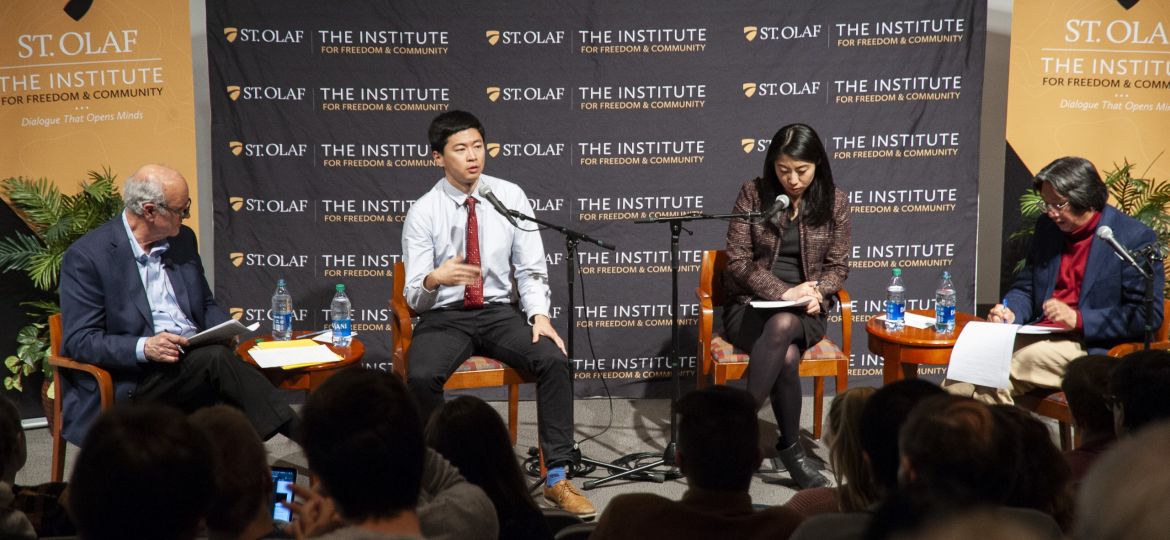
Three experts on China’s usage of artificial intelligence (AI) convened at St. Olaf’s Tomson Hall in front of a live audience of hundreds of students and community members on Wednesday, March 4. Over the course of one and a half hours, the three experts discussed the intricacies of China’s employment of AI, including its nuances, implications and trajectories.
Present were Joy Dantong Ma, a data scientist at Home Partners of America, Jeffrey Ding, a researcher at the Center for the Governance of Artificial Intelligence, and Xiao Qiang, a research scientist at the U.C. Berkeley School of Information and founder of the China Digital Times.
Each of the three specialized in different angles of AI and Chinese policy. Ding, a specialist on the interactions between government and technology, spoke mostly on the varying applications of AI within China’s bureaucracy. He spoke on the differences between national and local policy, stressing that different local governments are prone to employing AI and facial recognition differently.
Ma used her technical knowledge of data science to speak about the functionality of key concepts involved. She focused mainly on the inner workings of the software, defining the nuances and applications of terms like “open source.”
Finally, Qiang evoked his lived experience as a Chinese citizen to argue some of the more dystopian points of the three, speaking of the authoritarian trends seen in China’s usage of AI, and delivering harsh criticisms of the Chinese government based on their handling of the recent coronavirus outbreak in Wuhan.
Ultimately, the three speakers wove together an invaluable perspective on the future of China, AI and authoritarianism. Though Ma and Ding were not quite as pessimistic as Qiang, each of the three speakers offered a common theme that China is unique in its deployment with AI due to the wide variety of its applications, providing useful tools to governments that wish to impose a tighter control on their citizen body.
Though the future is uncertain, the perspectives of individuals like Ma, Ding and Qiang are sure to prove imperative when analyzing future developments.

